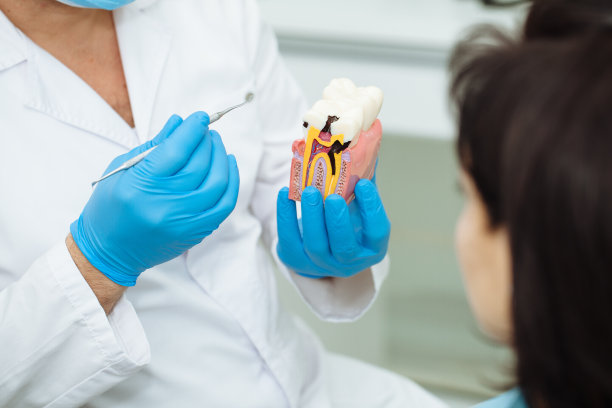Essential Precautions to Consider Before Undergoing Dental Implant Surgery for Optimal Results and Safety Measures
Summary: Before undergoing dental implant surgery, certain essential precautions are crucial for ensuring optimal results and safety. This article will explore four primary considerations: understanding the procedure and recovery, evaluating your oral health, choosing a qualified dental professional, and preparing for the surgery and aftercare. Each of these areas plays a significant role in minimizing risks and enhancing the success of the implant. By taking these steps seriously, patients can significantly improve their experience and outcomes.
1. Understanding the Procedure and Recovery

Before committing to dental implant surgery, its important for patients to thoroughly understand the entire process. This involves knowing not only what dental implants are but also how they are surgically placed within the jawbone. The procedure usually entails numbing the area, making an incision, and placing the implant, followed by stitching up the gums. Patients should also be aware of the expected timeframe for the surgery and healing process, which can take several months.
Moreover, recovery from dental implant surgery can vary among individuals, influenced by factors such as age, overall health, and the complexity of the case. Understanding the different phases of recovery helps set realistic expectations. Initial discomfort is typical, but knowing how to manage pain and swelling through prescribed medications can ease the recovery journey.
In addition, it is essential to realize the importance of follow-up visits with the dentist post-surgery. These appointments allow the dental professional to monitor the healing process, ensure that the implant is integrating well with the jawbone, and address any complications that may arise. This proactive approach to care ultimately contributes to a successful outcome.
2. Evaluating Your Oral Health Status
Your overall oral health is a critical factor in the success of dental implants. Before the procedure, it is advisable to undergo a comprehensive dental evaluation to identify any existing issues, such as gum disease or tooth decay, that could complicate the surgery. Healthy gums and sufficient jawbone density are fundamental because the implant needs a solid foundation to be securely anchored.
Additionally, a discussion with your dentist about any medical conditions or medications that might affect your oral health is crucial. Some conditions, such as diabetes or autoimmune diseases, can hinder the body’s healing ability, impacting the overall success of the operation. Hence, being transparent about your health history facilitates personalized care and appropriate preventive measures.
Another important aspect of evaluating your oral health is to ensure optimal oral hygiene practices before and after the implant surgery. Neglecting oral care can lead to infections that not only jeopardize the healing process but also compromise the integration of the implant. Adopting good oral hygiene can significantly support the longevity and success of the implants.
3. Choosing a Qualified Dental Professional
Selecting the right dental professional is paramount for a successful dental implant outcome. Not all dentists have the same level of experience or expertise in implant surgery. Patients should conduct thorough research, including checking credentials, certifications, and specific training in dental implantology. Recommendations from trusted sources and patient reviews can also provide valuable insights into the competency and practices of dental professionals.
Another aspect to consider is the technology and techniques employed by the dental office. Advanced technology not only improves the accuracy of the procedure but also minimizes risks associated with surgery. For instance, a dental practice that utilizes 3D imaging technology can better plan the surgery according to the unique anatomy of the patient’s mouth.
Moreover, it’s crucial to assess the dental professional’s approach to patient care, including how well they communicate and address patient concerns. A good dentist will take the time to explain every aspect of the process, ensuring patients feel comfortable and informed. Establishing a trusting relationship with your dental provider can lead to better outcomes and an enhanced overall experience.
4. Preparing for Surgery and Aftercare
Preparation for dental implant surgery is just as critical as the surgery itself. Patients should expect to receive detailed instructions from their dental professional on how to prepare for the procedure. This may include dietary restrictions or guidelines on medications to avoid that could affect the surgery.
Furthermore, mental preparation can also play a significant role in the surgery experience. Understanding the potential risks and having a support plan in place, such as arranging transportation to and from the clinic, can alleviate anxiety. Engaging in relaxation techniques or discussing concerns with the dental team can also foster a more positive outlook leading up to the surgery.
Post-operative care is essential for a successful recovery and involves following the dentist’s aftercare instructions meticulously. This includes guidelines on pain management, dietary restrictions, and follow-up appointments for monitoring healing. Proper aftercare not only accelerates recovery but also enhances the likelihood of successful implant integration, ensuring a long-term solution for missing teeth.
Summary:
Before undergoing dental implant surgery, various essential precautions must be taken into account to optimize results and ensure safety. From understanding the procedure and evaluating oral health to wisely choosing a qualified dentist and thoroughly preparing for surgery, each factor contributes significantly to a successful experience.
Being informed and proactive in these areas can lead to remarkable benefits and avoid potential complications, showcasing the importance of proper preparation in dental implant procedures. Taking these precautions to heart can empower patients on their journey towards restoring their smiles.
This article is compiled by Vickong Dental and the content is for reference only



